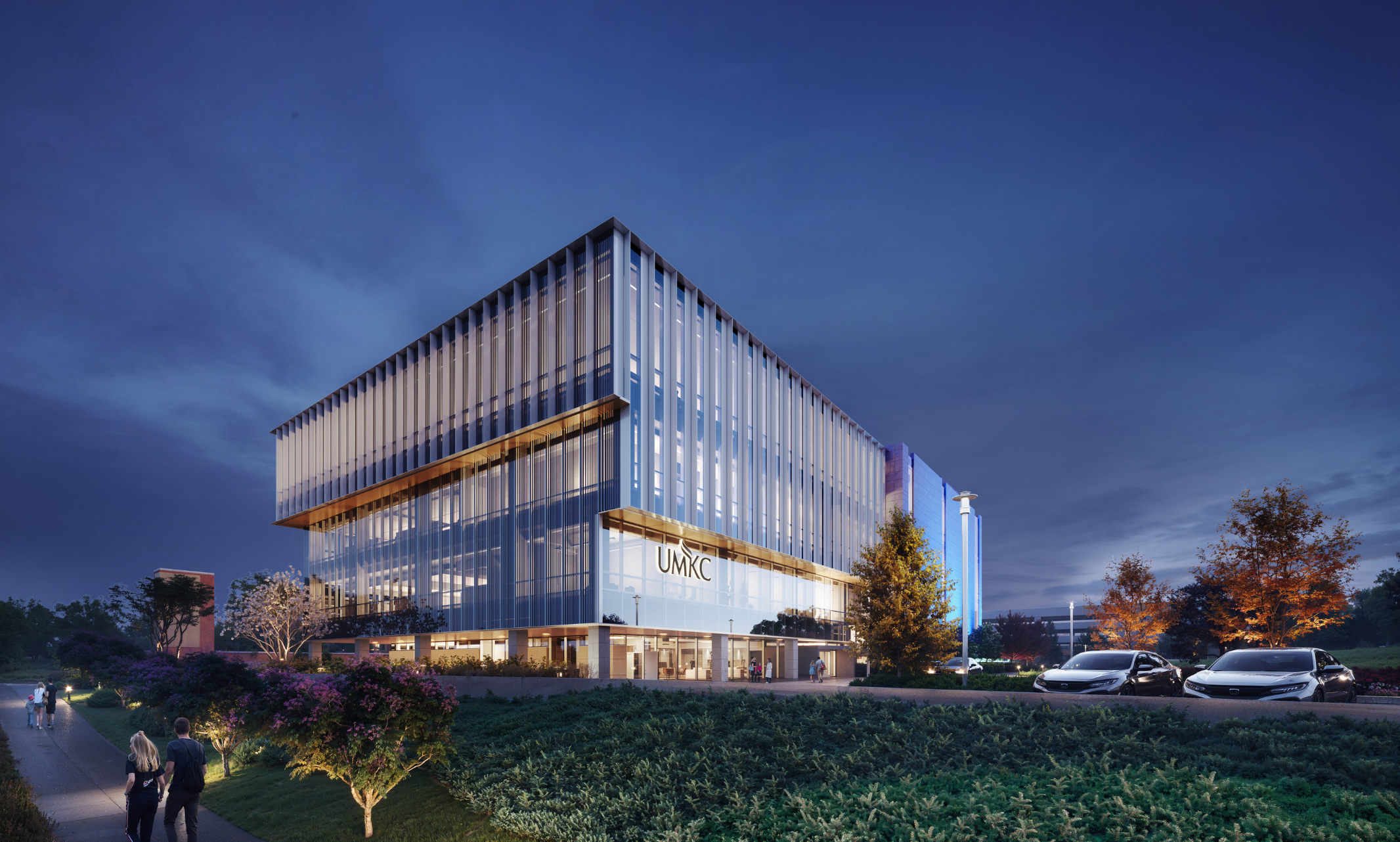Tents showcasing University of Missouri-Kansas City dental and medical students using the latest technologies greeted visitors at a celebration open to the neighbors and the community of the university’s largest capital investment to date: the $145 million Healthcare Delivery and Innovation Building.
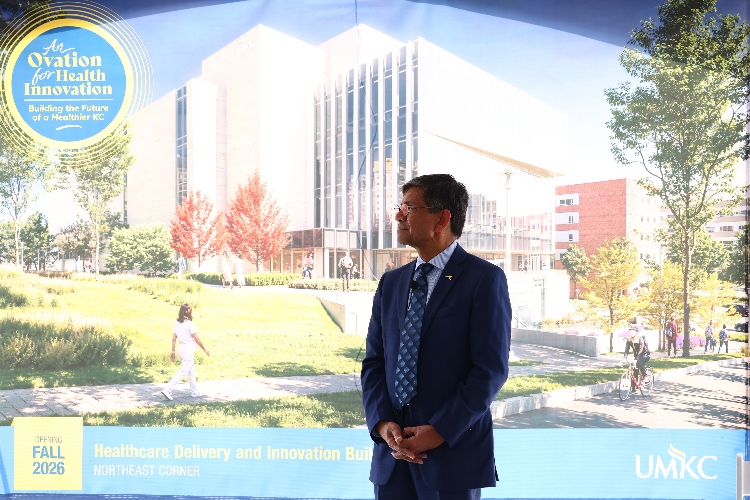
UMKC celebrated the start of construction on Wednesday with a party on the corner of 25th and Charlotte streets where this five-story, 160,000-square-foot signature building will soon rise from the ground. UMKC envisions that the new building will catalyze growth in the UMKC Health Sciences District, a collective entity that includes four UMKC health professions schools, University Health, Children’s Mercy and numerous other healthcare organizations in an 18-block area on Hospital Hill.
The new building will enable the university to provide state-of-the-art education for the next generation of dentists and doctors, find new and better ways to serve patients in need, strengthen collaborations with surrounding neighborhoods and facilitate greater interdisciplinary partnerships to fuel innovation and research.
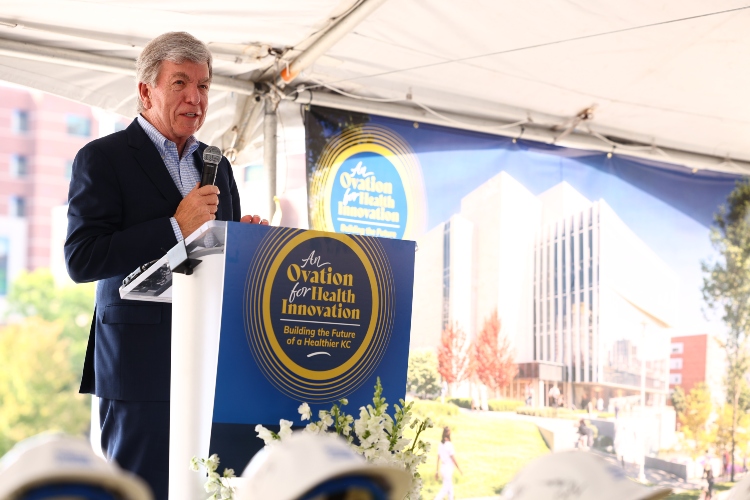
Speakers at Wednesday’s event, including former U.S. Sen. Roy Blunt, University of Missouri System President Mun Choi, UM Curator Chair Robin Wenneker, students and UMKC Chancellor Mauli Agrawal spoke of the transformation the building will bring to healthcare education in Kansas City and the surrounding region.
“As exciting as this new facility is – as exciting as today is – I want to emphasize that this is just the beginning,” Agrawal said. “This building is the first piece of a much larger vision for our UMKC Health Sciences District.”
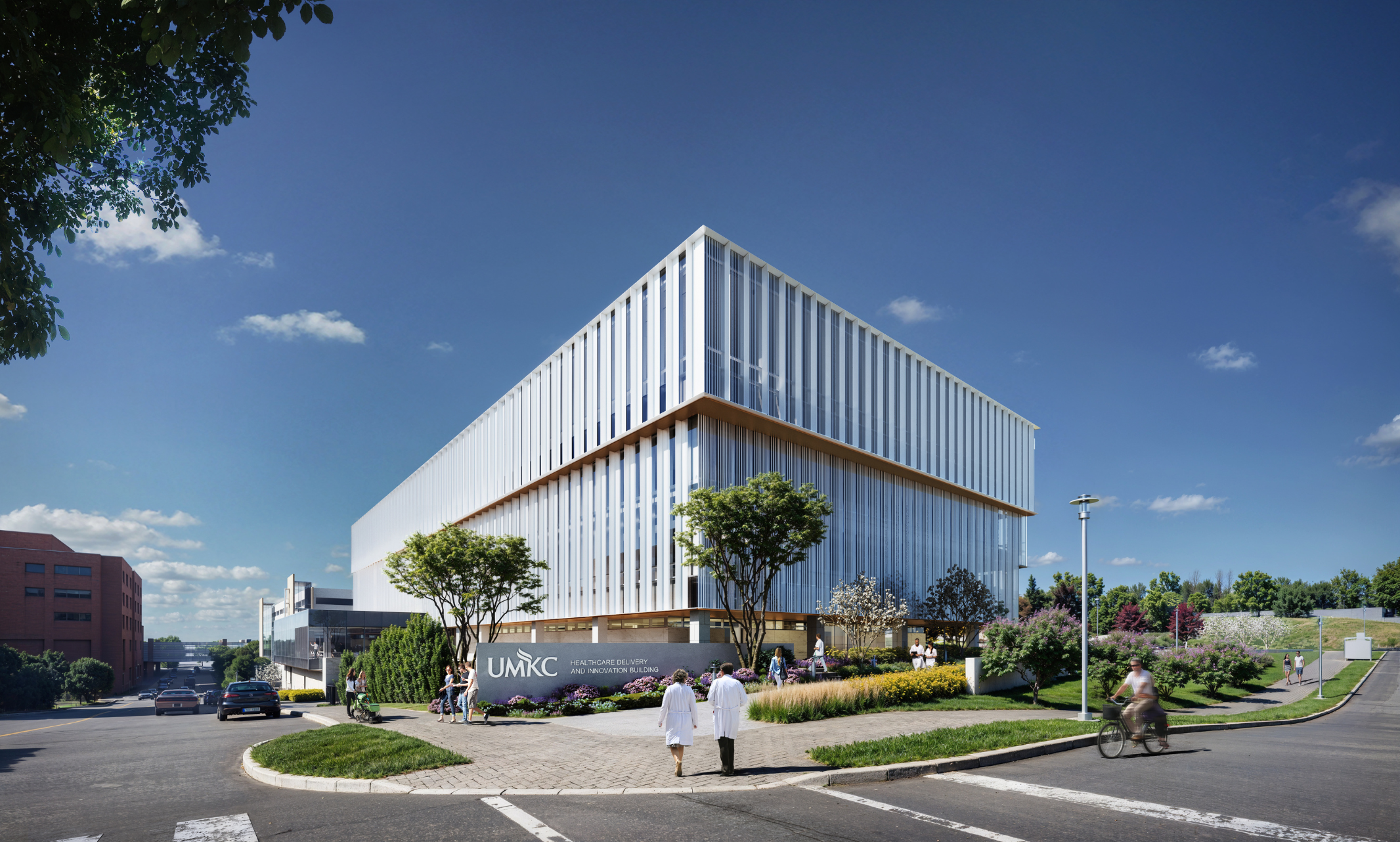
Funding for the project came from public and private sources, with the largest portion coming from state funding. Missouri Gov. Mike Parson led the charge to make the project happen, in partnership with state legislators. The Sunderland Foundation and the Hall Family Foundation also contributed generously, and Blunt secured a federal grant.
At Wednesday’s celebration, UMKC also celebrated one of its alumni - Nelson Sabates (B.A. ‘83/M.D. ‘86) his wife, Rachael, and their children who donated a gift of $3 million for the project - the largest alumni donation the School of Medicine has received. Their family name will grace the terrace and grand lobby of the building.
“This building represents the future of healthcare in Kansas City,” said Sabates, who also is a professor and chairman of the department of ophthalmology at UMKC. “My wife and I made this decision to help improve healthcare and health outcomes for our community. We hope others are inspired by this vision and will join us in creating an ever-growing and vibrant UMKC Health Sciences District."

Two students shared their views on the significance of the new building and the opportunities it affords them to receive an excellent education and give back to the community.
Jacey Brewer, a junior pursuing a biomedical engineering degree, said: “The proximity to Children’s Mercy is one of the reasons why I chose UMKC, and my dream is to work on designing prosthetics that will change children’s lives and give them their childhood back. This new building will provide the foundation for cutting-edge research and technological advancements in healthcare.”
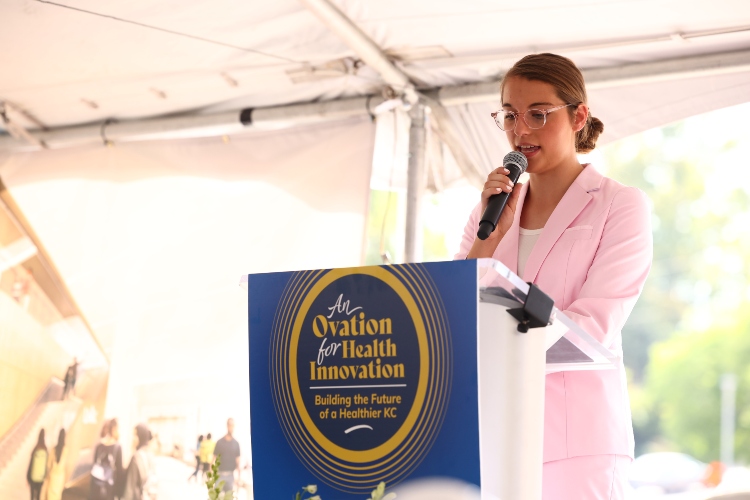
Tim Nguyen, a third-year dental student and UMKC Trustees’ Scholar, said: “The Healthcare Delivery and Innovation Building will provide leading-edge pre-doctoral dental clinics, allowing students to serve more patients in need through advanced equipment, expanded hours for acute dental care and the ability to implement teledentistry for those where access to care is limited. With advanced clinical simulation labs and modern research spaces, UMKC will be able to continue to foster high standards in education and patient care in its future healthcare leaders.”
The Healthcare Delivery and Innovation Building, set to open in 2026, will house and support numerous programs, allowing for innovations in education and healthcare research and an emphasis on providing access to care for disinvested neighborhoods in Kansas City. McCownGordon will oversee construction of the facility.
Here are the key areas included in the building:
UMKC School of Dentistry
UMKC is a regional leader in dental education as the only public dental school in Missouri and Kansas. The new building will provide leading-edge pre-doctoral dental and dental hygiene clinics, enhancing the school’s ability to graduate top-notch dentists and hygienists. The new space also means students can serve more patients in need through advanced equipment, greater efficiency, expanded hours for acute dental care and the ability to implement teledentistry. Currently, the School of Dentistry provides up to $750,000 annually in uncompensated dental care for the community.
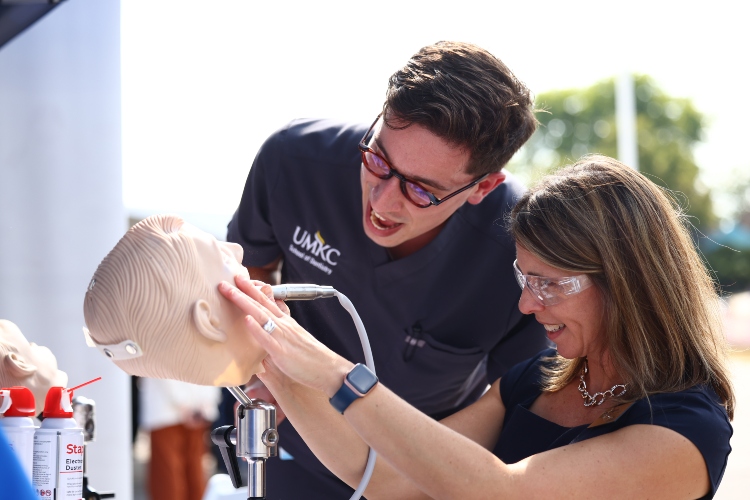
UMKC Health Equity Institute
The institute brings together researchers, government and community organizations to improve the lives of the underserved and bridge healthcare gaps. The institute combines its research strengths with community groups’ grassroots involvement to identify, quantify and reduce those gaps. In the new building, researchers will collaborate to tackle health disparities and provide access to healthcare with initiatives including Our Healthy Jackson County, bringing free vaccines, health screenings and other resources into neighborhoods and places of worship.
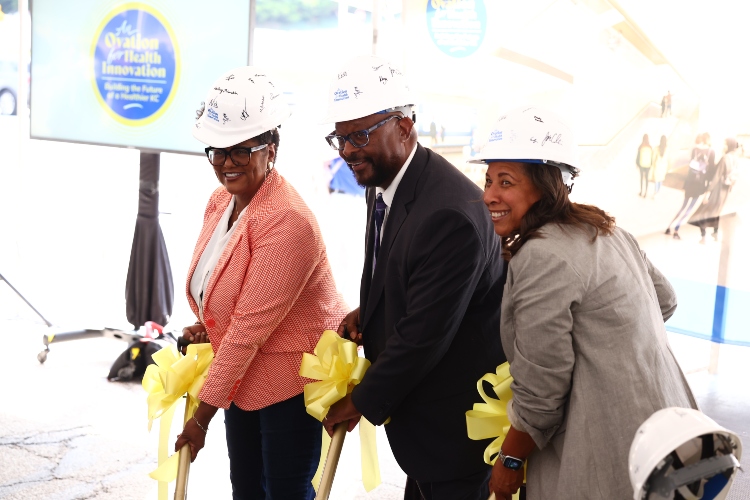
Data Science and Analytics Innovation Center
In partnership with the University of Missouri and other UM System universities, UMKC leads a center focused on creating new advances in data sciences and analytics. The new space in the building will provide the center opportunities to focus the power of data science on transforming the way we personalize healthcare. The data center within the new facility will provide high-performance computing for industry, government and nonprofit organizations within our region to solve data-intensive computing problems.
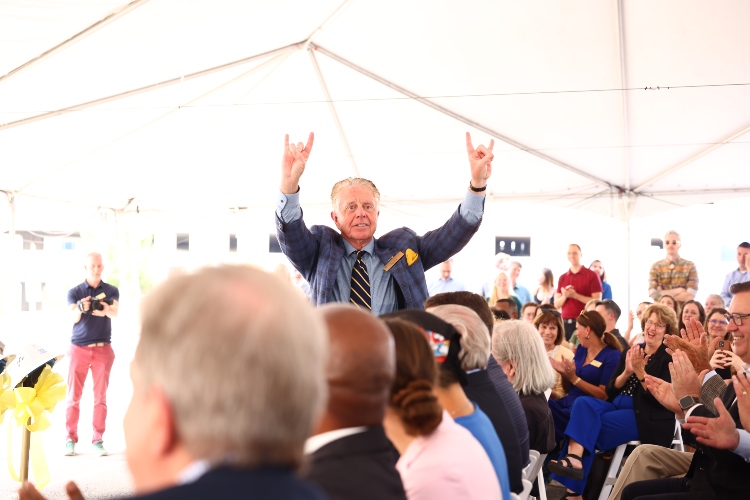
UMKC biomedical engineering
In the new building, doctors, dentists, engineers and students will work side by side, creating faster, more-effective collaboration between science, engineering and the medical world. Product development will accelerate in areas such as medical implants, imaging technology and surgery tools, and UMKC can expand access to the in-demand biomedical engineering degree program from the School of Science and Engineering with potential global impact.


